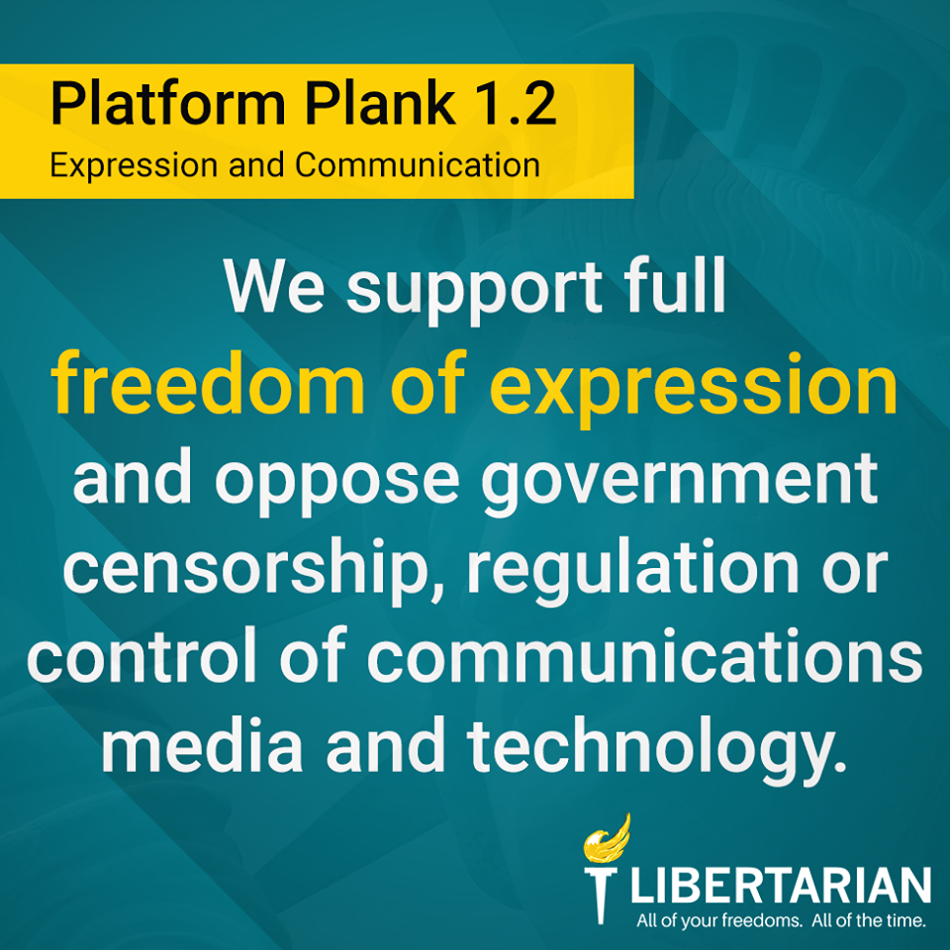
Is Facebook good or evil? That seems to be the underlying question that led Facebook CEO Mark Zuckerberg to subject himself to 10 hours of grilling by Congress on April 10 and 11.
“Facebook can be used for both good and evil,” said Libertarian National Committee Executive Director Wes Benedict. “In a job interview almost 10 years ago, a retired Navy admiral asked me if I used Facebook. I responded, ‘Just a little. Not much.’ The admiral proceeded to tell me that Facebook was bad news and I should stay away from it. Within a year, I was working at LP headquarters and sending emails that boasted about how the Libertarian Party’s Facebook page had blown past 40,000 fans.”
Facebook doesn’t always handle controversial issues well, though. Only a couple of months later, the Libertarian Party sent press releases complaining about how Facebook was censoring ads that advocated marijuana legalization, even as the LP recognizes that Facebook has a fundamental right to control content on its platform and exercise censorship at its discretion.
“Soon after, I connected on Facebook with a friend from first grade that I hadn’t communicated with in decades and married her,” Benedict said. “I see both the pros and the cons of Facebook. More important than my personal opinion about Facebook, though, is the role of government regarding Facebook. Government regulation is bad news. Government should stay away from Facebook. The power of government to regulate is usually ultimately abused, and when that regulation involves widespread speech and expression, that regulation can violate individual rights at a fundamental level. I care about the sanctity of the First Amendment. Also, when government has the power to hurt companies, those companies start paying for lobbyists and making campaign contributions, which can lead to corruption.”
The business model of Facebook, along with all other online firms that provide “free” services, is to harvest data supplied by their users and then sell that data to advertisers for targeted marketing. Anybody who uses Facebook, Twitter, Instagram, Gmail, and any other online platforms, agree to the terms of service when creating an account. If those users, or their teams of lawyers, click “agree” without reading the fine print, the repercussions are their own responsibility.
There has been plenty of outrage in recent weeks that targeted Facebook advertising may have helped Donald Trump win the 2016 presidential election, but this is not a new phenomenon. Barack Obama was praised for his innovative data targeting in 2008, and Sen. Ted Cruz is a notable electoral beneficiary of data-driven online advertising, along with many other politicians who now pretend to be indignant about a widespread campaign strategy that most of them have used.
This political theater conveniently ignores the fact that Facebook amassed its data through the willing participation of its users. Meanwhile, 17 federal surveillance agencies that were created by Congress are collecting data on us without our consent. We are also forced to hand over more volumes of personal data whenever we file an income tax return or apply for a government permit.
To whatever extent Facebook may have violated its user agreements, it is to subject legal penalties and damages. To whatever extent Facebook is fostering a biased ideological platform, users can always delete their accounts and go elsewhere. Many have done so, and there’s no telling which social media portal could become dominant in the future.
The Internet is the fastest-growing industry of the past several decades, and a primary reason for this is the comparative lack of online regulation. In his congressional testimony, Zuckerberg pointed out that Facebook started in his dorm room, and noted that an oppressive regulatory climate can make it impossible for innovative startups to get started.
”I think a lot of times regulation puts in place rules that a large company like ours can easily comply with but that small startups can’t,” Zuckerberg said.
The Libertarian Party is the only political party that supports full freedom of expression and opposes government censorship, regulation, or control of communications media and technology. We’re running more than 2,000 candidates for public office in 2018 to give voters throughout the United States a chance to elect leaders who will protect their fundamental rights.

